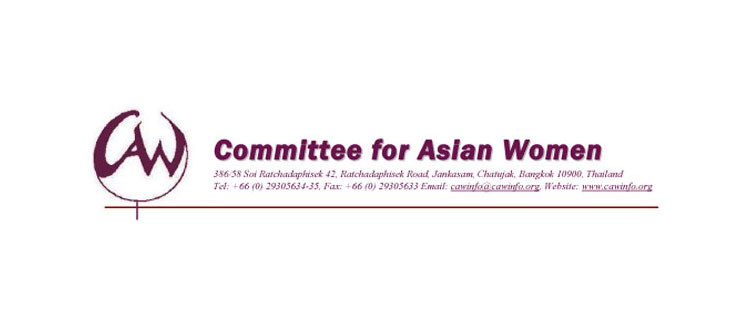May Day is Domestic Workers’ Day
2011 marks a historic event in the world of working women, as the International Labour Organisation prepares to adopt an international standard for domestic workers in its June conference.
There are millions of domestic workers around the world, most of them women and almost half are Asian. Domestic work employs more women migrant workers than any industry or enterprise especially in developed countries. It is also one of the most hazardous and unregulated sectors. As a result thousands of women migrant and local domestic workers suffer long hours of work, heavy and dangerous workloads, unpaid wages and inhumane working conditions, often resulting in deaths at work or deaths from trying to escape from their situation. Unlike factory workers of today, many domestic workers suffer from sexual violence and harassment on a daily basis with no access to administrative or judicial remedy because of the “home-bound” and “family-oriented” nature of their work as well as their status in society- being women, being from the lower class/caste, and being a foreigner.
The movement for recognition and protection of domestic workers started together with the demands of women workers for equal recognition and safe working environments, one hundred years ago, from the early factories in the United States. Since then the global movement that affirms all women are ‘working’ (as mothers, as employees, as carers, as bearers of generations) has influenced the recognition of many sectors of women’s work, and has gained for women the right to work in previously male dominated areas.
Today, even with the many gains by women workers, and despite a globalised economy which has seen the rise in employment of women a majority remain underpaid, unorganized, unprotected, overworked, stressed, sexually violated, discriminated, voiceless and ignored because they are women.
On May Day we call on governments, trade unions and employers to support the ILO Convention on Domestic Work. The Convention shall provide an international standard for recognition of domestic workers as workers. It shall address issues pertaining to wages, working conditions, hours of work, contracts, and benefits among others. The Convention comprises a first important step towards a universal legal framework on work done within ‘households’- an area still very much dominated by women- and brings us closer to the original vision of women workers one hundred years ago, of a safe environment wherever women are working.
Contact: Niza Concepcion
Secretariat OIC
E-mail: niza@cawinfo.org







